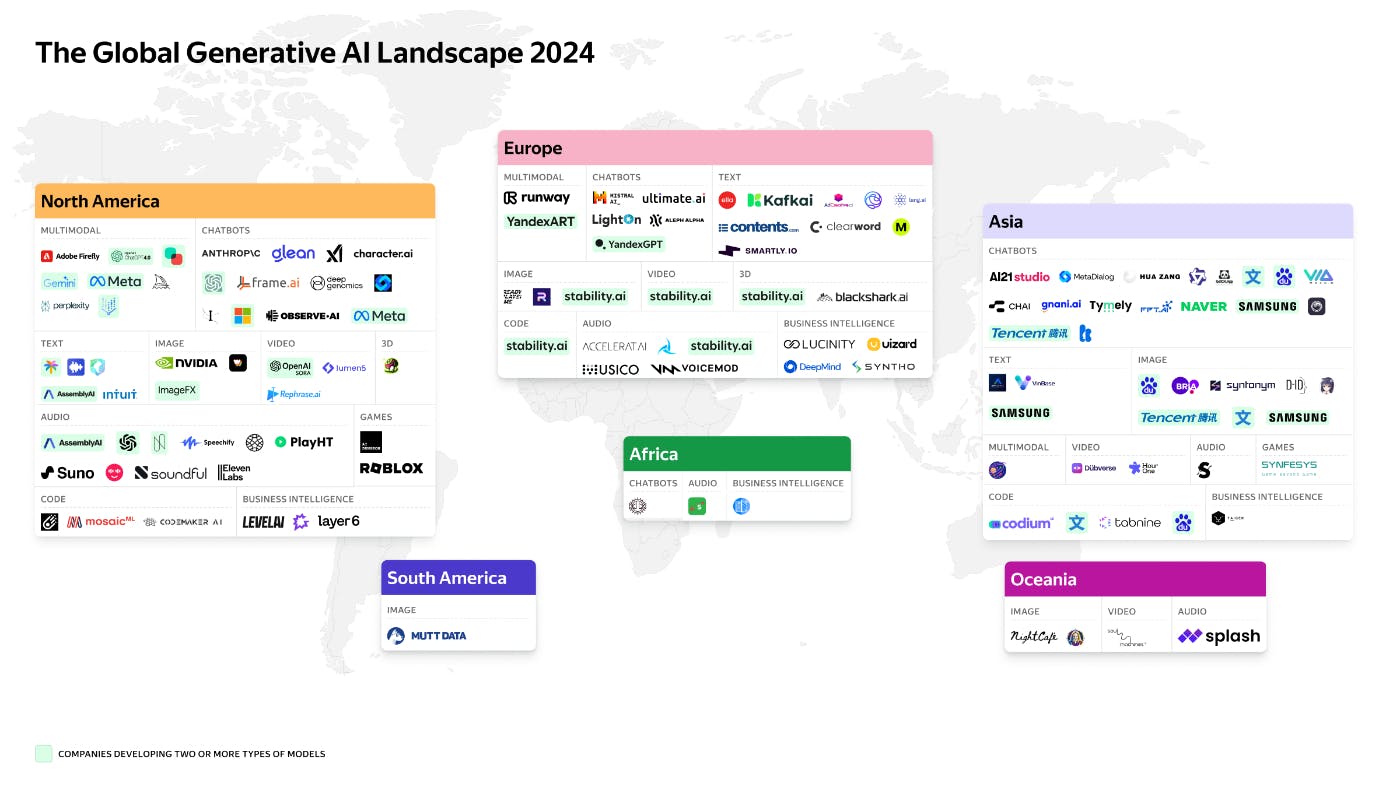1,566 reads
Global GenAI Landscape 2024: Roughly Half of Nations That Invest in AI Develop Generative Models
by
March 5th, 2024
Audio Presented by

Your international hub for AI news, deep dives, industry insights, and more. Subscribe! https://www.blog.aiport.tech/
Story's Credibility

About Author
Your international hub for AI news, deep dives, industry insights, and more. Subscribe! https://www.blog.aiport.tech/
